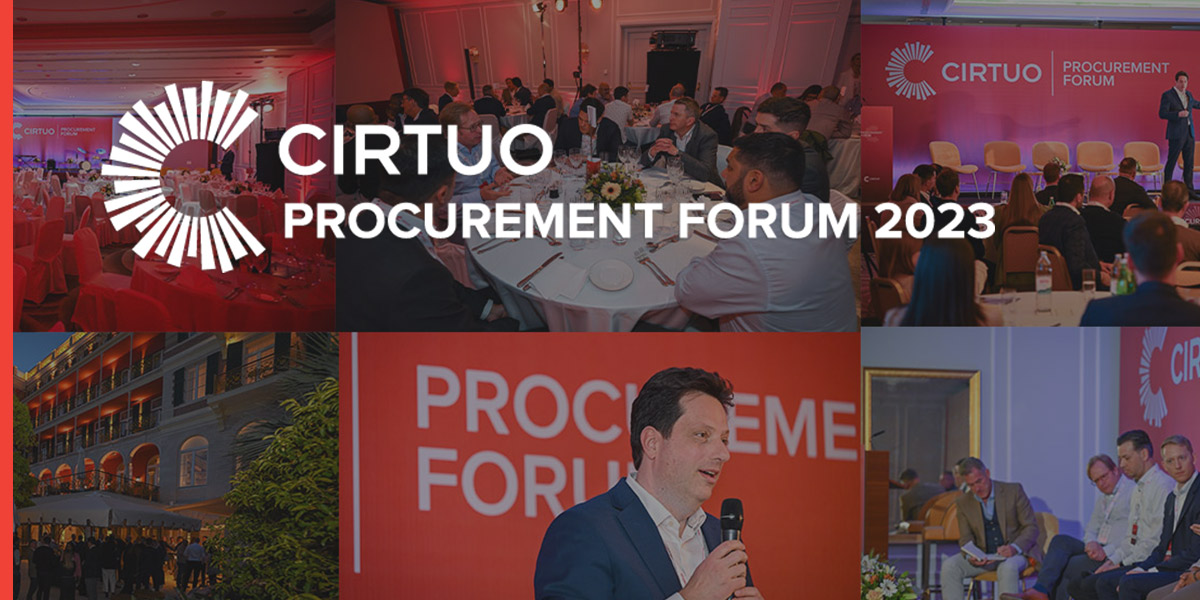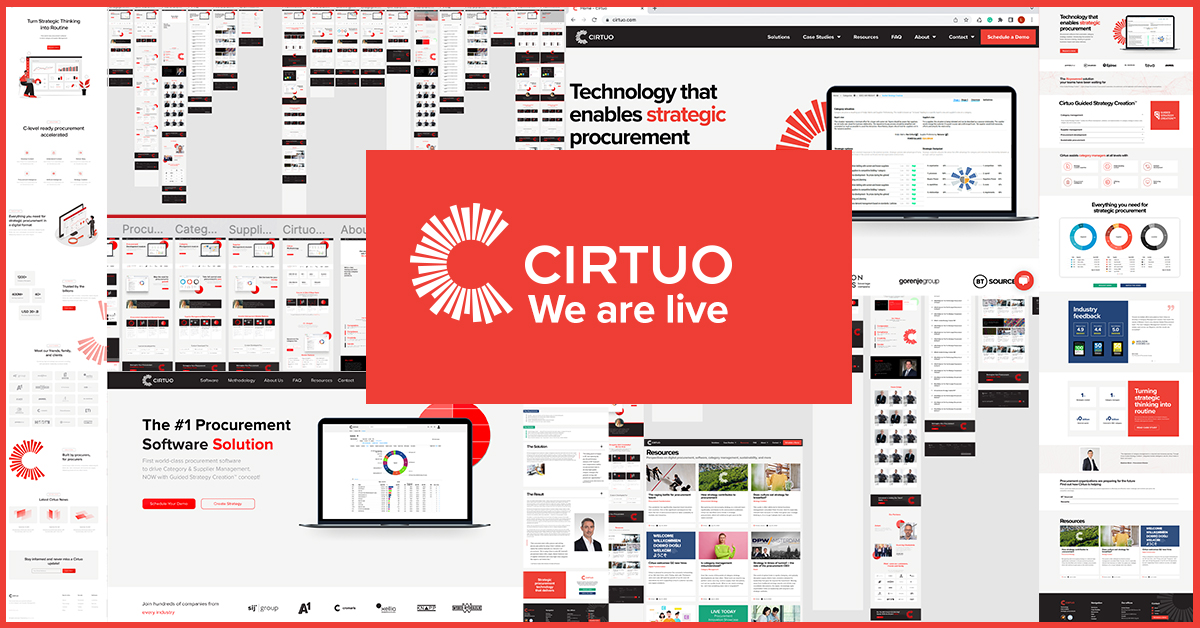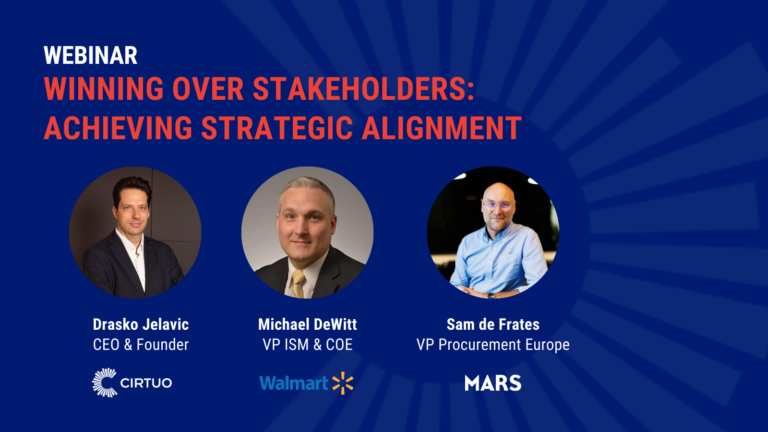Category Management is dead! This is a bold statement for kicking off the only event entirely focused on Category Management. The Cirtuo Procurement Forum 2023 on April 27th and 28th in Dubrovnik, Croatia, brought together over 120 category management professionals, industry experts, Cirtuo clients, and professional services providers from across the world and from various industries like Pharma, Retail, Automotive, or FMCG to engage in a mix of keynote presentations, expert panels, and round-table discussions.
Cirtuo Procurement Forum 2023: Highlights
Dr. Elouise Epstein of Kearney is known for her thought-provoking and uneasy perspectives on the future direction of Procurement and the technology that surrounds it. The opening keynote “The Future of Category Management in the Age of AI” was a tour de force and set the scene for two days of discussing best practices, exploring industry trends, sharing experiences, and, most importantly, networking with Procurement peers.
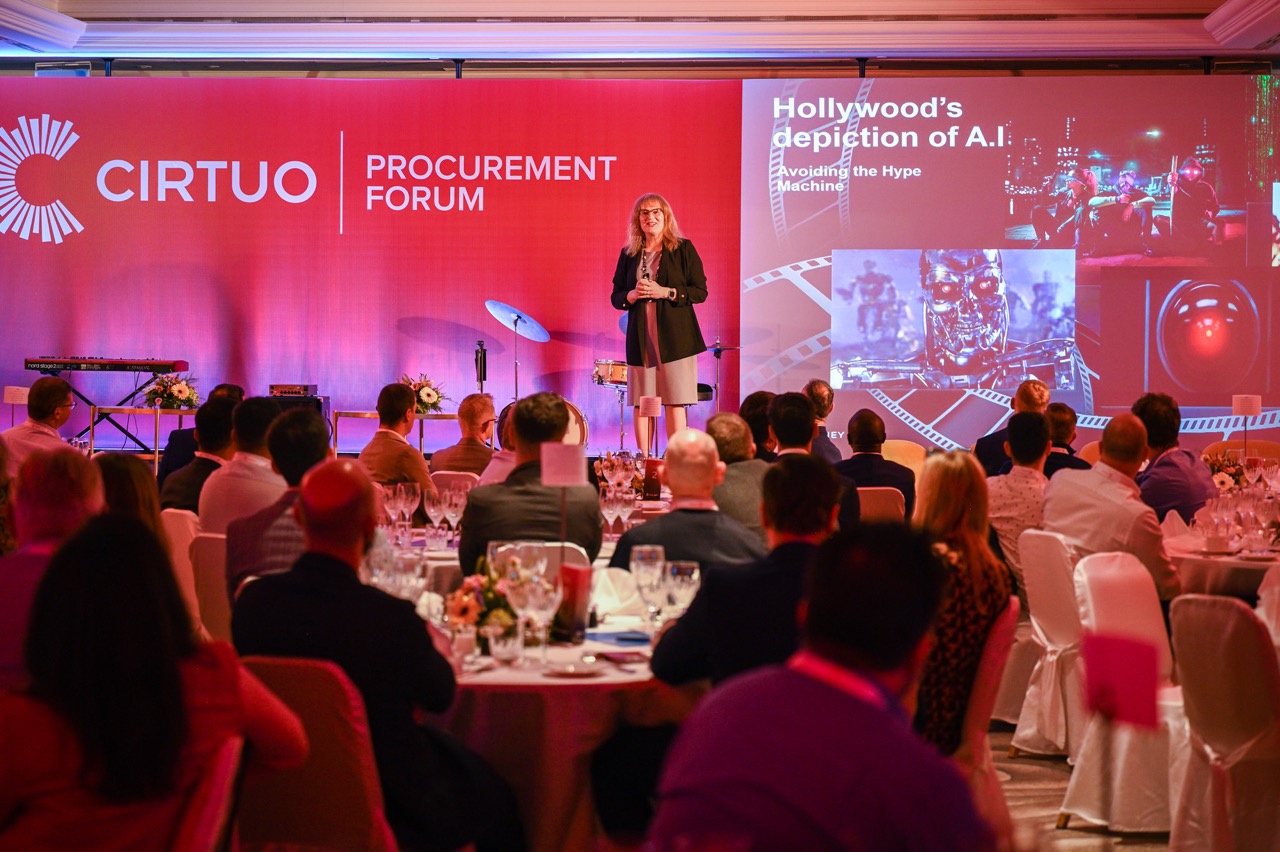
Dr. Epstein drew a story arch from nuclear war and Dr. Strangelove’s “Doomsday machine” towards the rise of AI and the digital evolution of Category Management over the past 15 years. She used historic examples from the cold war to bring attention to the potentially catastrophic consequences of unsupervised machines that are more relevant today than ever. Reflecting on our collective move from printed strategies in binders to digitized files on CDs or in SharePoint to a solution focused on managing spend categories holistically within less than two decades was eye-opening. The common thread of both stories was a very human one. Category managers have an important role to play in the future of Category Management. Creating meaningful strategies requires human intelligence to understand and translate business objectives into strategies and to draw the right conclusions from ambiguous signals.
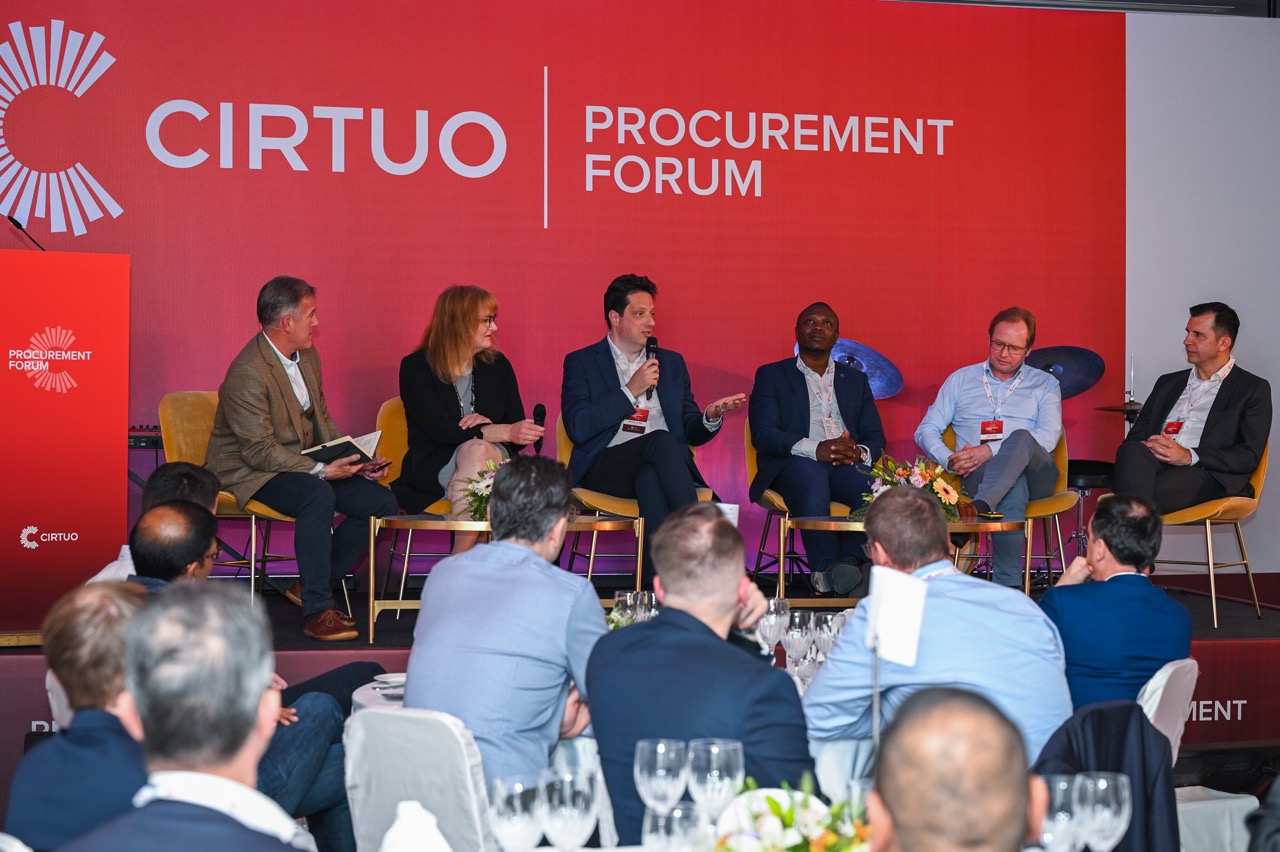
The implication of current and future technology developments on Procurement and the role of category managers in the age of AI provided great food for thought and inspiration for the expert panel on “Excellence in Category Management” that followed. The panel including Dr. Epstein, Drasko Jelavic, CEO of Cirtuo, Sam Achampong, GM CIPS Middle East, Mark Webb, CEO of Future of Purchasing, and Stephane Morel, ex-Head of S2P Processes, Novartis, discussed the impact of digitalization on the profession and the evolving requirements towards practitioners. Quick polls with the audience ensured discussions were aligned with the experience on the ground.
One key element of the event was to give the audience plenty of opportunity to discuss best practices and real-world examples of implementing Category Management and driving business value in the comfort of a room filled with like-minded Category Management specialists. The first round table extended the discussion from the stage to the audience in a discussion on the current state and future focus for implementing category management in their organizations.
The discussions at the Cirtuo Procurement Forum confirmed that Category Management is at the core of the Procurement profession and a key value driver for many organizations. But despite the value it can deliver and its importance for creating resilient and robust supply chains, a lack of focus on stakeholders, business requirements, or overall execution makes it fall short of its potential. The procurement-centric and siloed approach to category management is therefore dead indeed.
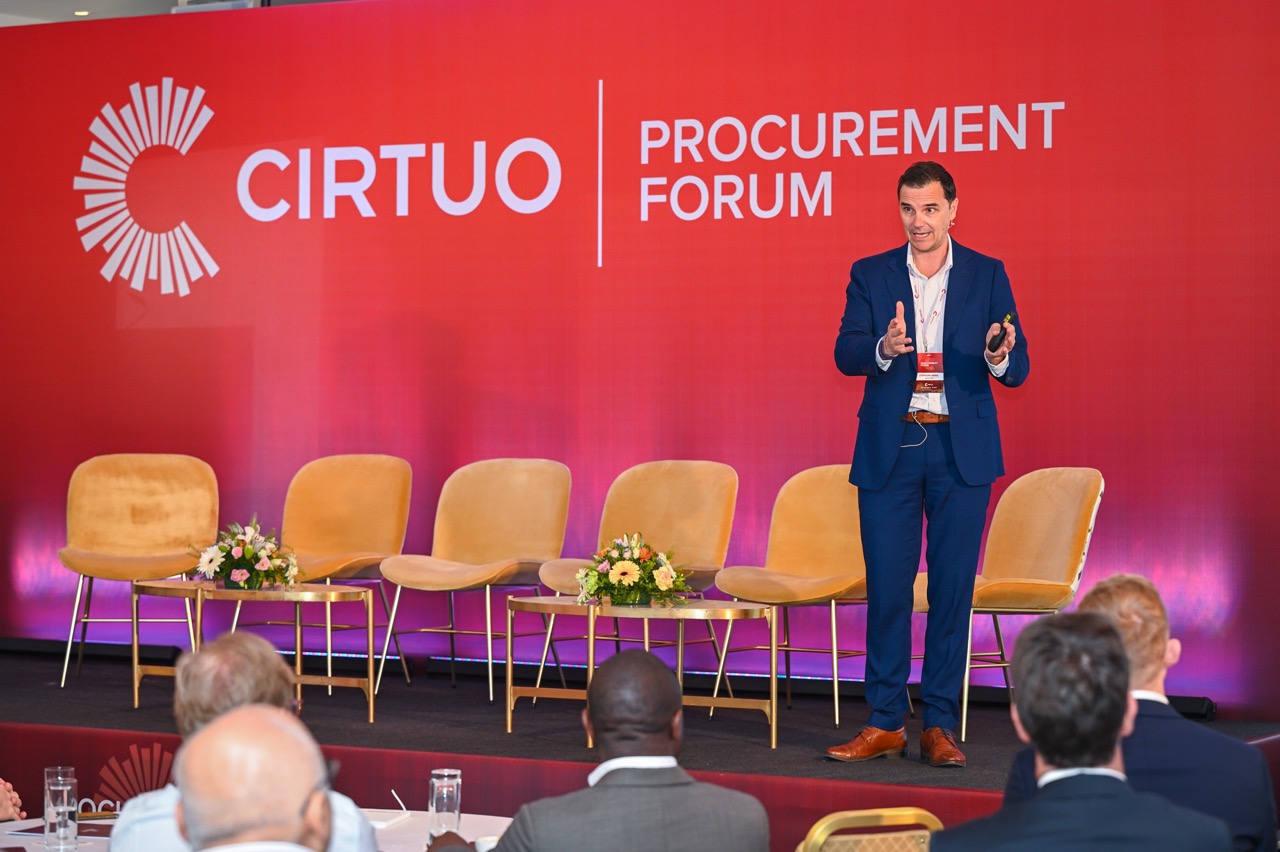
After closing the evening with a networking dinner, Day 2 was fully focused on demonstrating that the heart of Procurement is still beating strong. Stephane Morel of Novartis brought full attention to the key factors for successful category management programs with his keynote on “How to make category management relevant for the business.” He hit a nerve with the audience when he proclaimed that understanding the needs & requirements of internal stakeholders and reflecting them in category strategies is a priority that will ultimately enhance stakeholder alignment and collaboration. He painted a vivid picture of how category management can create actionable insights and improve efficient decision-making.
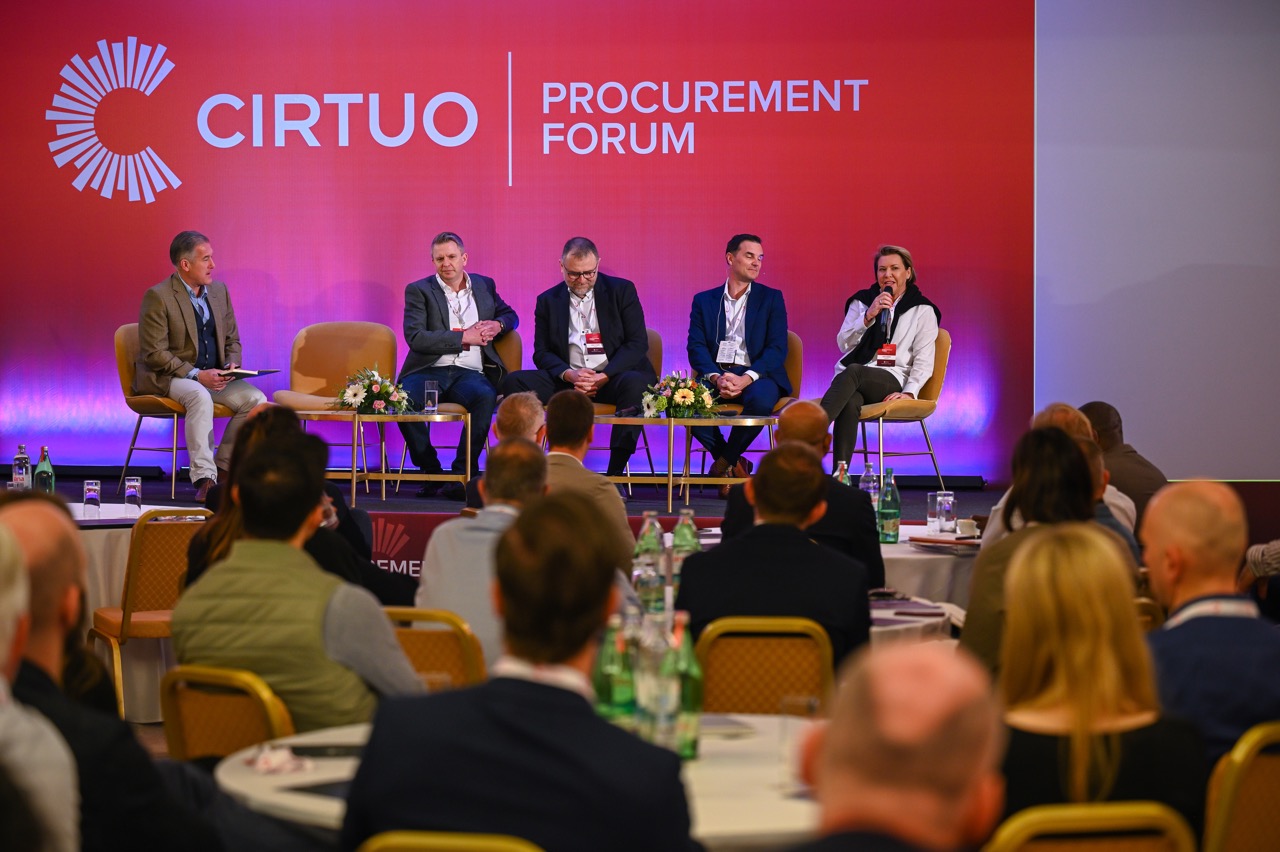
Flanked by a panel discussion on “How to align procurement with competing business objectives” featuring Jim Abbot of Astra Zeneca, Josip Stopic of Xellia, and Lisa Harris of Baringa next to Stephane and a round table discussion on “How to drive acceptance and adoption of Category Management throughout the organization”, Procurement working in isolation and focusing on itself rather than business objectives was the key theme and issue of the morning.
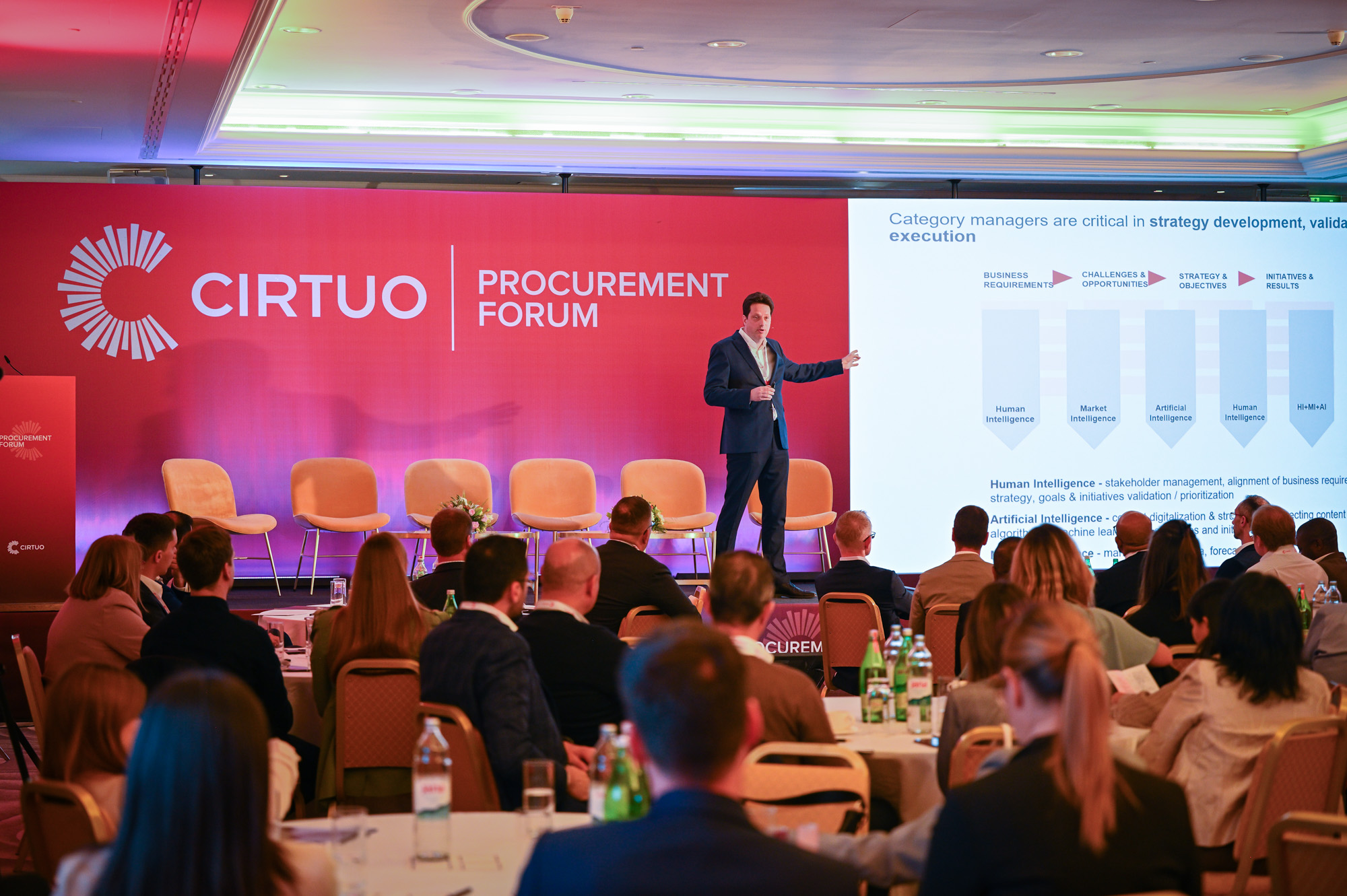
Drasko Jelavic, CEO of Cirtuo, drilled even deeper into the misalignment of Procurement with the business as the root cause for not getting the proverbial seat at the table. In his keynote “The digital revolution in Category Management: building strategies that elevate procurement to the C-level”, he laid out his framework for embedding business objectives throughout Procurement. The Strategy Alignment Matrix, first presented and launched at the Cirtuo Procurement Forum, provides an actionable tool for cascading business strategies into Procurement strategy, and subsequently into category, supplier management, and negotiation strategies. By creating this end-to-end alignment of objectives and goals, Procurement, empowered by technology, will ultimately be relevant for the business.
Luka Fresl, Cirtuo’s Chief Product Officer, picked up on this concept and provided the audience with a glimpse into the upcoming version of Cirtuo’s AI-powered category strategy software, Guided Strategy Creation Pro. He demonstrated some advanced stakeholder management and collaboration capabilities, a practicable application of ChatGPT for driving efficiency in strategy creation, and how category managers can incorporate external market developments and data feeds in their category strategies to make more informed decisions faster. Get in touch to discuss how digitizing category management can help you achieve greater impact for and with your team.
After lunch, Travis Johnson, Sr. Director, ISM Procurement & Technology Enablement at Walmart International reflected on Walmart’s partnership with Cirtuo. He shared anecdotes from his own childhood to reflect on the importance of governance and structure (make sure your screws are tightened!) for driving efficiency and impact. He provided examples of his colleague reducing the time required for creating category strategies from 60 hours down to 30 hours and eventually 8-12 hours by using Cirtuo, which led to a discussion around the ROI of Category Management and the cost of doing nothing. Travis made a strong case for digitizing Category Management based on his experience with Cirtuo and the fact that almost no training was required as “the solution implemented itself”. Over the two days, this sentiment was shared by many other clients like Astra Zeneca, Johnson Matthey, GSK, and others.
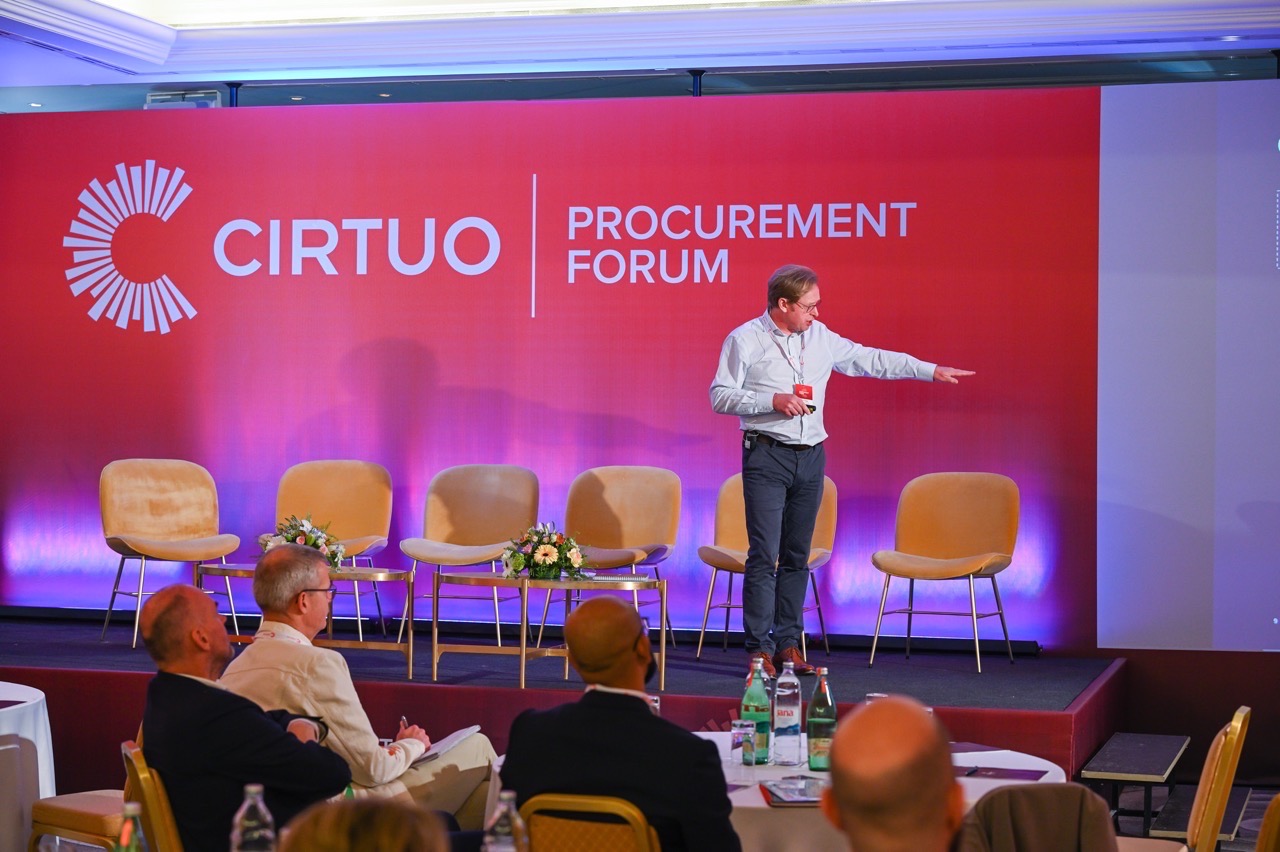
Mark Webb, CEO of Future of Purchasing, provided a glimpse into the current state of adopting Category Management in his session on “Category Management in action: a study of implementation and impact across industry”. Based on a 2022 survey conducted globally, he shared some statistics on the overall adoption and maturity of category management that were hard to digest. 75% of respondents were classified as Starters and only 5% as Leaders. A quick poll across the room on the level of maturity of their organization in regard to Category Management showed that the survey results were representative. On a scale from 1-10, with 1 meaning nonexistent and 10 being very mature, the range was between 3 and 8, with the majority being around 5-6.
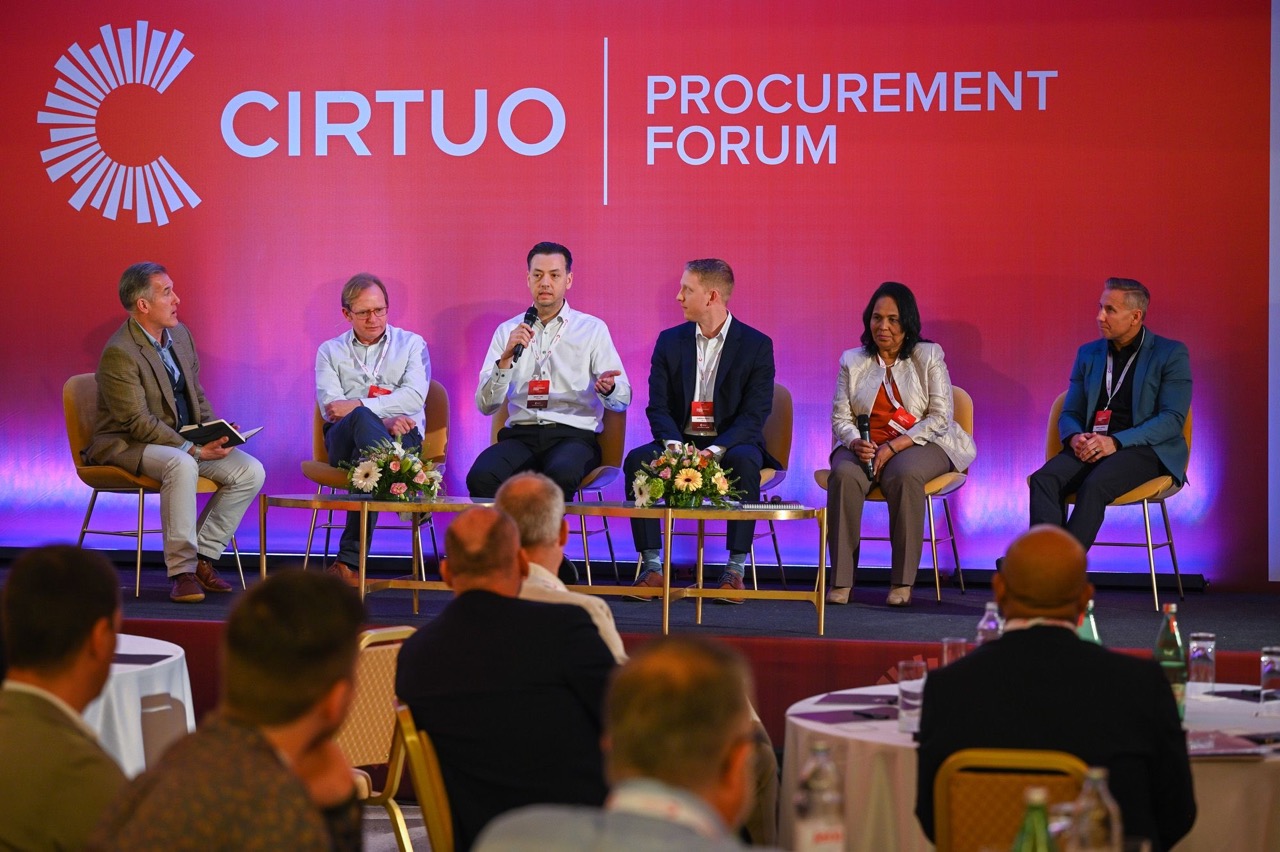
The following panel discussion on “The ROI of Category Management: how to measure the impact of implementing Category Management” involving Breno Jung of Corning, Andrew Speck, and Ganga Siebertz of Cirtuo, next to Mark and Travis highlighted the difficulties of defining what ROI means for Category Management and how to measure it. With Return On Investment being a financial indicator that is required at the time of investment, telling a complete and convincing story becomes especially difficult. Expanding on Travis’ thoughts, three main dimensions emerged throughout the discussions: financial impact measured as additional savings, increased efficiency measured as time savings, and soft benefits or governance improvements. The round table on real-life experiences for demonstrating the ROI provided further nuances on the matter. We will provide a detailed review and perspective on how to define the ROI of Category Management in a separate blog post.
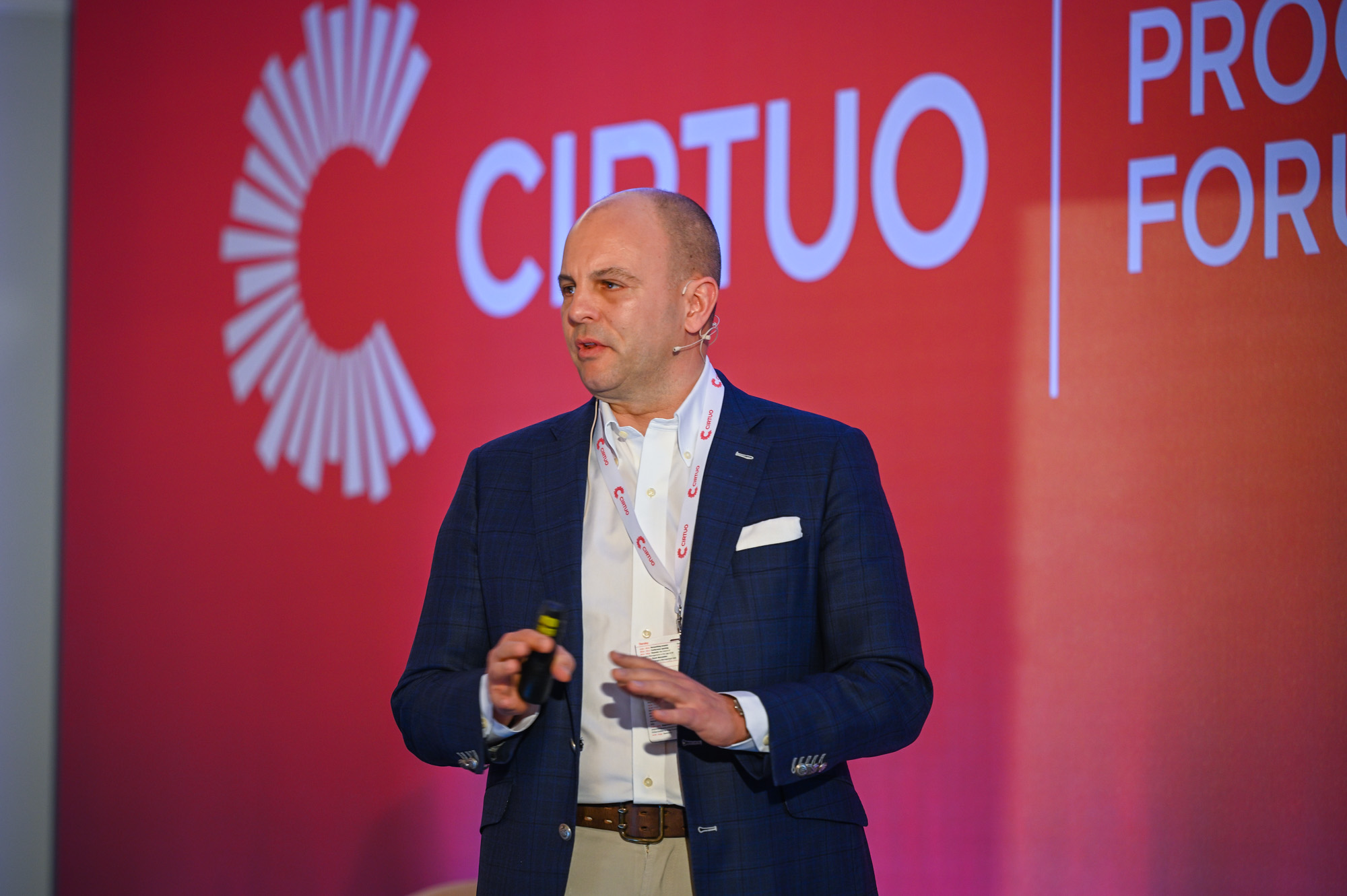
Marcel Stalder, CEO of ChainIQ, picked up on the current state of category management in his session “The importance of Category Strategies in today’s transforming environment.” He made a case for offering ‘Category Strategies as a Service’ through empowering humans with technology, namely ChainIQ with Cirtuo. Attracting talent, fluctuations in resources, retaining knowledge, and limited experience in non-core categories might result in missed opportunities, especially considering the frequency of market-moving events.
Lastly, Cirtuos’s Drasko Jelavic reflected on the conference and foreshadowed a continuation of the Procurement Forum in the next year. The importance of collaboration, the evolution of business requirements, the importance of agility, and the required skillset of the future could fill numerous pages. We will ensure that key sessions and insights become available over the next weeks and months.
The key takeaways for the audience after two days of discussion were the renewed focus on customer centricity and the importance of aligning category strategies with business objectives. This fresh perspective culminated in a new mantra on Category Management:
Category Management is dead. Long live Category Management!
